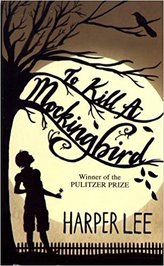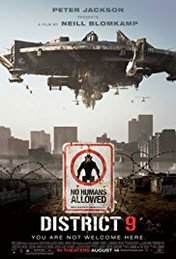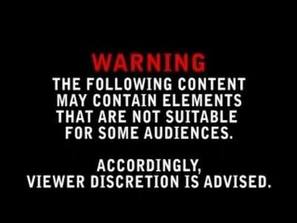|
by Joe Magaletta  There’s a story that makes me uncomfortable. A black man has been accused of raping a white woman. We follow the story of an attorney who goes out of his way to try and prove that the woman is making a false allegation, doubting the victim in this situation. It’s an exploration of bias, the justice system, racial inequality, and compassion. These are all ideas that are worth exploring… But now I’m uncomfortable. Therefore, To Kill a Mockingbird shouldn’t be taught in schools. This is a growing trend: the fear of being offended, of confronting triggers, of having to question ideas and explore points of view that don’t exactly mesh with our own. The political climate is as heated as ever, and the desire to hear the opposition has died down in favor of preaching to the choir.  But that’s the real world. It’s more understandable to be hesitant of potentially dangerous ideals when there can be real consequences. Discussions about something like gun control have real world ramifications that people rightfully get heated about. The fictional world is where we can ask some truly controversial questions without having to worry about that. So if we can’t explore complicated, intriguing, and uncomfortable ideas in the realm of fiction, where do we go? What’s the limit to what we can discuss and where we feel it’s okay to discuss it? Entire genres are devoted to having the desire and commitment to asking the audience, “How does this make you feel?” Science fiction uses different dimensions and species in order to discuss issues of inequality, genocide, human rights, the implications of conscious thought and when life can no longer be deemed artificial, among others. A relatively recent and challenging entry in this genre was District 9. District 9 was a film about aliens. It was also an intelligent and well thought out commentary on apartheid in South Africa, and how those ideals could take the next logical step if a new form of life was introduced to Earth. Why are these questions and themes okay to discuss, but let’s say, an alternate history where the Confederacy successfully seceded isn’t? (cough cough Confederate cough cough) Is it because District 9 is a commentary of an issue we don’t care as much about because it’s foreign? Does the geography of a moral issue limit our desire to care and be outraged? Why is a familiar theme about race okay to explore in the fictional context of extraterrestrial life, but no longer okay when it hits closer to home as an equally familiar alternate history tale? If anything, shouldn’t we be more eager to explore ideas that more accurately represent our experiences? I’m not even saying I feel Confederate will be anything of high quality. The base concept sounds done and tired, but that’s all there is right now: an idea. Without more information, why are people so quick to campaign for its death? At least people have a finished product in To Kill a Mockingbird to be angry about. It seems to come down to a fear of being confronted with difficult ideas, but I’d argue that being offended is important. We need to tackle controversial ideas head on if we ever want to understand, and maintain an understanding, of the difference between right and wrong. The day we can no longer be offended, or even bear the thought of it, something is truly broken. In a free society, there will be inequality. Where there’s inequality, there are questions and issues to be explored. And where there’s intellectual property to be built upon, artists and thinkers need to be willing to cultivate that land and grow from it. If we cover our eyes and ears and refuse to acknowledge that territory, an innumerable amount of weeds and overgrowth from inattentiveness create an environment unfit for change barring a nuclear option.  I don’t really have many answers for the questions I’m raising, and I’m probably not the person to answer them, but I’m at least sure that I’m willing to have a conversation about them. I’m willing to judge a difficult piece of work on its quality rather than its subject matter. And I’m willing to admit that I’m a hypocrite because I’ve passed judgments on pieces of work I haven’t taken the time to read/see due to my own bias, but I want to be better than that. Trigger warnings are valuable tools that should absolutely exist. When a film/show is dealing with sensitive issues like rape, domestic violence, or suicide, it makes sense to warn people who might have problems watching that subject matter unfold due to personal experience or any other valid reason. Netflix even added trigger warnings to 13 Reasons Why after the strong emotional response to the first season. You don’t aggressively throw sensitive material in the face of people who are wary of the subject matter. At that point you’re not trying to have a conversation, you’re just being an asshole. If someone doesn’t want to read/watch something, that’s fine. But when the idea of “being triggered” is applied to any subject matter you don’t like, and is used as a tool to try and alter or delete an artist’s vision, it starts to lose its importance and impact. A trigger shouldn’t be an indicator of a work’s quality. I’m not telling anyone to “man up” or saying that people shouldn’t use their right to be wary of possibly triggering material. I just don’t want to see meaningful conversation pieces and historically relevant literature like To Kill a Mockingbird be diminished into naughty, offensive curiosities. I don’t want artists to play it safe in fear of being controversial. I want people to be offensive with a purpose. So please, tell me about how wrong I am. Tell me that I’m being offensive. I’d love to have that discussion.
1 Comment
9/26/2019 11:05:03 am
Yes, the ideological, identitarian, herd mentality leads to the death of literature, replacing it with socially-acceptable writings mere pale clones of each other, vanishing into repetitious meaninglessness. Words and ideas are SUPPOSED to "trigger" people -- why else write them? In a world that fears "racializing", "marginalizing" and all the "-izings", self-censorship, not government censorship, is the chief enemy of free expression today.
Reply
Leave a Reply. |
Archives
July 2024
Categories
All
|
|
Glassworks is a publication of Rowan University's Master of Arts in Writing 260 Victoria Street • Glassboro, New Jersey 08028 [email protected] |
All Content on this Site (c) 2024 Glassworks
|

 RSS Feed
RSS Feed
